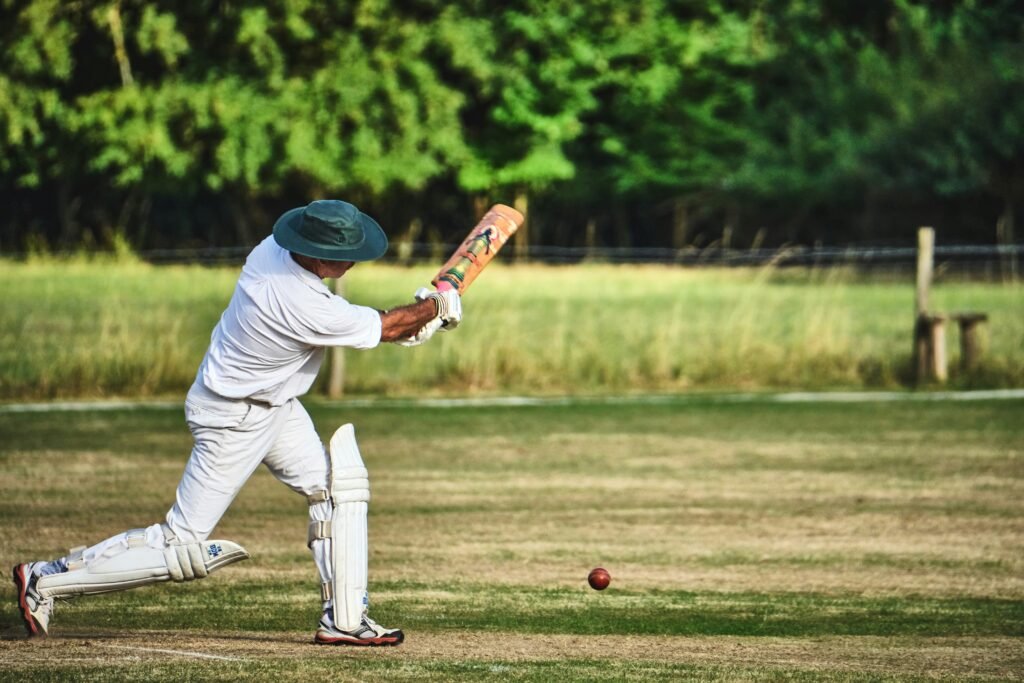The legal battle imminent over the Champions Trophy boycott and its consequences in 2025 is set to create a stir in the cricketing world. As discussions intensify, we find ourselves on the edge of a significant turning point for the sport. In this article, I will provide you with updates and insights into the various dimensions of the controversy, shedding light on the implications that may arise from this unfolding situation. Whether you’re a die-hard cricket fan or just someone curious about the sport’s legal entanglements, I promise you’ll find all the pertinent information about the legal battle imminent over Champions Trophy boycott and consequences 2025 right here.
Looking ahead, I think the repercussions of this legal skirmish could resonate throughout the cricket community for years to come. The complexities surrounding the boycott may lead to a re-evaluation of how international tournaments are organized and approached in the future. With over ten years of experience in the cricket and sports field since 2013, we have cultivated a deep understanding of these dynamics. Our commitment is to keep you informed on the legal battle imminent over Champions Trophy boycott and consequences 2025, as we strive to deliver the most accurate and insightful coverage of this unfolding story.
Legal Battle Imminent Over Champions Trophy Boycott & Consequences
Understanding the Champions Trophy Boycott
The Champions Trophy is a highly anticipated cricket tournament that brings together teams from different nations. However, recent discussions have centered around the idea of a boycott, which could significantly change the tournament’s dynamic. People around the world wonder why several countries might decide to withdraw from participation in 2025. Some fans argue that the reasons are rooted in political disagreements, while others believe they stem from issues of fairness in the sport.
In this heated debate, we find ourselves feeling a mix of emotions. On one hand, there’s a desire for unity in the sport. On the other, there’s recognition of serious matters that need addressing. This inflection point could lead to serious discussions about the future of the tournament and what it means for cricket at large. The implications stretch beyond just one event; they touch on the heart of sportsmanship and integrity.
The Possible Legal Ramifications
If teams do go ahead with a boycott, legal challenges might arise. Sports associations of the countries involved could find themselves entangled in lawsuits. Legal experts suggest that contracts and agreements about participation could be scrutinized. This means both players and governing bodies might face legal challenges, especially if they feel their rights are being violated by the boycott.
We hear a lot of talk about how this could disrupt not just the tournament, but also relationships between different cricket boards. Legal battles often bring about lengthy and costly proceedings. This might leave cricket fans on the edges of their seats, wondering how it will all unfold. In my opinion, it’s crucial for all parties involved to consider the broader consequences of their actions before making drastic decisions.
Impact on Fans and Followers
The potential boycott could make many fans feel disappointed. Cricket enthusiasts live for moments of excitement, and a tournament like the Champions Trophy is a significant event on the calendar. Each match not only showcases talent but also strengthens the bond between players and their supporters. It’s that exhilaration of cheering for our favorite teams and witnessing thrilling matches that makes the sport special.
If some teams withdraw, the narrative becomes complicated. Fans deserve to see the best talent compete. The thrill of an unexpected outcome can turn a good match into a legendary one. If the boycott goes ahead, the magic of the Champions Trophy might disappear for many. I think it’s fair to say, the joy of cricket lies in the spirit of competition—something that might take a hit due to these possible actions.
Consequences for the Future of Cricket
The possible boycott could set a precedent that influences future tournaments. If teams can pull out without facing significant repercussions, it might encourage more boycotts in the future. This could undermine not only the Champions Trophy but also other major international events. Governing bodies might need to step in and enforce stricter rules regarding participation to prevent these issues from escalating.
In the long run, I feel this could change how international cricket is perceived. Governing bodies need to remain vigilant and actively engage in conversations about the implications of such a boycott. Our experience in the cricket and sports field for over ten years shows us that fairness and transparency are crucial. If they falter, other nations may feel compelled to follow suit, leading to a fragmented landscape in what should be a unified sport.
The Role of Governing Bodies
Governing bodies like the ICC play an essential role in managing these challenges. It’s crucial for them to facilitate dialogue among participating nations, ensuring everyone has a voice. A directive or roadmap could help. Actively addressing the concerns causing the boycott may prevent it from happening in the first place. It can also set a positive example for the future.
In my opinion, the focus should be on collaboration rather than conflict. Governing bodies can encourage mediations and discussions among teams to foster understanding. By doing so, they can perhaps avoid potential legal disputes and maintain the integrity of the tournament. Ensuring that all voices are heard might just create an environment where everyone feels respected and valued.
The Economic Considerations
A boycott could lead to economic repercussions not just for the involved countries but for the cricketing economy as a whole. Sponsorships, merchandise sales, and ticket sales might take a nosedive if teams decide to pull out. Businesses associated with cricket could face significant losses. This aspect of the boycott cannot be understated, as local economies often rely on such grand events.
Furthermore, I think the ripple effect will reach beyond immediate financial impacts. Jobs associated with organizing and running these tournaments may also be threatened. For countries hoping to showcase their sporting prowess, this would mean a setback. The excitement around the Champions Trophy brings life to local economies, making it an event they look forward to with anticipation.
What’s Next for the Champions Trophy?
As discussions on a potential boycott unfold, the future of the Champions Trophy hangs in the balance. Will teams choose cooperation or isolation? Only time will tell. In my opinion, the best path forward involves promoting dialogue and understanding. By navigating through these challenges, teams can work on solutions that serve the interests of cricket as a whole.
Each of us has our thoughts and feelings about what might happen next. We all want to see exciting matches and thrilling competitions. It’s essential for all involved to remember why we love cricket: the camaraderie, the thrill, and the shared joy of cheering for our teams. Moving forward positively can help preserve the spirit of the Champions Trophy for generations to come.





